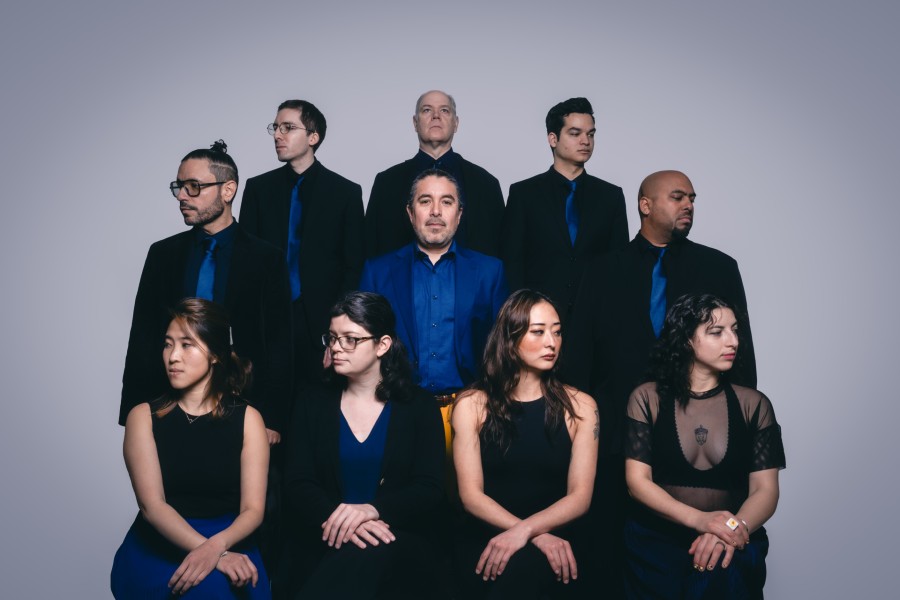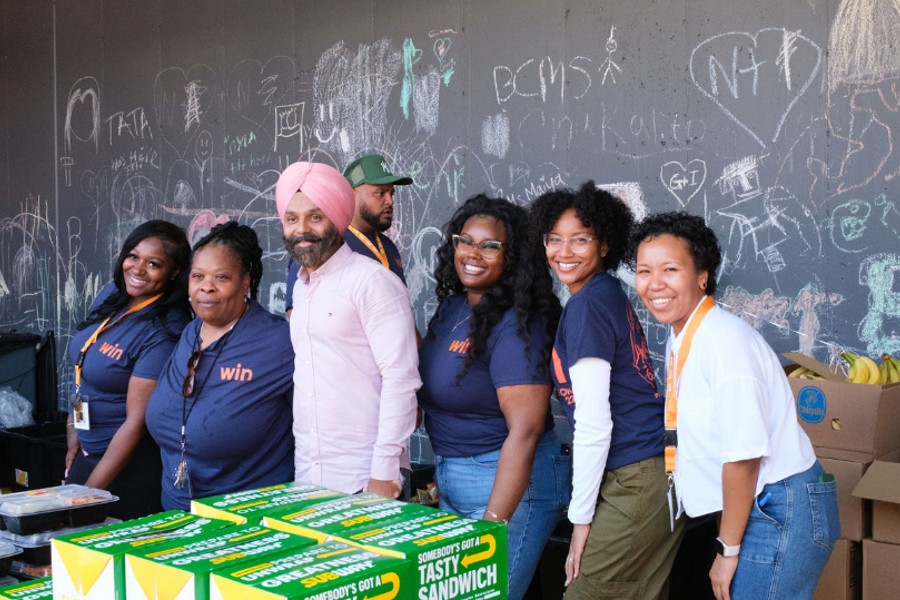 Department of Consumer and Worker Protection (DCWP) Commissioner Lorelei Salas today announced the release of a report titled “Ill Served: Why NYC Veterans Should Use Extra Caution When Choosing a For-Profit School.” The report explores the historical relationship between veterans and for-profit institutions, how well for-profit schools serve veterans, and if for-profit schools are a sound investment for veterans looking to pursue higher education. This is the first in what will be a series of reports about communities who are most vulnerable to student loan debt and/or are vulnerable to predatory targeting by for-profit schools.
Department of Consumer and Worker Protection (DCWP) Commissioner Lorelei Salas today announced the release of a report titled “Ill Served: Why NYC Veterans Should Use Extra Caution When Choosing a For-Profit School.” The report explores the historical relationship between veterans and for-profit institutions, how well for-profit schools serve veterans, and if for-profit schools are a sound investment for veterans looking to pursue higher education. This is the first in what will be a series of reports about communities who are most vulnerable to student loan debt and/or are vulnerable to predatory targeting by for-profit schools.
Previous DCWP research identified attendance at a for-profit school as one of seven factors that are associated with student loan default. We also found lower graduation rates at for-profit schools and a higher share of vulnerable populations attending for-profit schools, such as older students, students from low-income households, and students of color. This finding led DCWP to expand its research into for-profit schools, in particular the students who attend them. Because veterans make up a larger percentage of the undergraduate student body at for-profit institutions than at public and private non-profit institutions and are recruiting targets for for-profit colleges, student veterans are the first population that DCWP began to examine.
“We acknowledge that not all for-profit schools raise doubts about their quality or their business practices. However, our report shows that there is sufficient cause for students, particularly veterans with GI Bill benefits, to use increased caution when deciding if they should attend a for-profit institution,” said DCWP Commissioner Lorelei Salas. “In order to honor those who have served to protect us, we must commit to fight to protect our veterans from predatory schools that take advantage of them and the student loan debt that threatens their stability as they build their lives here at home.”
“Hardworking veterans who have protected our country and defended our freedoms should be focusing on the next phase of their lives, not whether they are being targeted by a predatory school and accruing insurmountable amounts of debt,” said Commissioner James Hendon, New York City Department of Veterans’ Services. “We are committed to the welfare of our city’s 210,000 veterans. This includes ensuring that they make the best decisions regarding how to use their GI Bill benefits. This way, upon graduation, veterans are financially stable, allowing us as a society to continue to benefit from their civic-mindedness and dedicated lives of service.”
“For far too long, military families have been victims of fraud and deception by the for-profit college industry,” saidSeth Frotman, Executive Director of the Student Borrower Protection Center and formerly the top regulator for the student finance industry at the Consumer Financial Protection Bureau. “DWCP’s report offers new evidence that these abuses are reshaping the lives and livelihoods of veterans across New York City, with low-income veterans, veterans of color, older veterans, and veterans with children paying the heaviest price for these schools’ abuses.”
The brief starts by providing a short overview of the history of for-profit schools. Since the passing of the first GI Bill in 1944, for-profit schools have flourished and floundered as regulations protecting students ebbed and flowed. One of the most recent regulatory actions left a loophole that incentivizes for-profit schools to target veterans. We then explore:
- Are for-profit schools targeting NYC veterans?
- Are for-profit schools serving the needs of NYC veterans?
- Are for-profit schools a sound investment for NYC veterans?
Key Findings:
- For-profit schools have a history of targeting veterans, with veterans who come from low-income backgrounds, students of color, students with children, and older students being even more vulnerable.
- NYC veterans are nearly twice as likely to attend a for-profit school than other comparable students—12 percent of independent students across New York City attended a for-profit degree-granting school in the 2016-2017 school year, while 21 percent of GI Bill recipients attended a for-profit school in 2018.
- Black veteran students in NYC, like Black students generally, are more likely than their white counterparts to enroll at for-profit schools—35 percent compared to 16 percent.
- To answer how well New York City for-profit schools serve veterans’ needs, DCWP examined completion rates, whether schools accommodate timely degree completion by offering school credit for military training, and earnings, specifically whether students earn more than they would have without having studied at these institutions.
- For-profit schools underperform nonprofit and public schools when it comes to on-time degree completion, with only 36 percent of students attending four-year degree granting for-profit schools having graduated within six years, compared to 48 percent and 62 percent at public and nonprofit schools, respectively.
- Private undergraduate degree-granting schools that NYC veterans attend—both nonprofit and for-profit—offer credit for military service at a rate 17 to 20 percentage points lower than the public institutions that serve NYC veterans. Facilitating degree completion by crediting the work experience of veterans is an important way to reduce the opportunity costs of higher education for veterans and help them more expeditiously join the civilian workforce.
- At 19 percent of for-profit schools attended by NYC GI Bill recipients in 2018, median earnings were equal to or less than the median earnings for comparable high school graduates who had not attended college.
- To evaluate the stability of New York City schools that serve veterans, DCWP looked at three metrics: the share of schools that have lost access to GI Bill funding, the share that have closed, and the share of schools attended by NYC veterans that have received a “caution” from the U.S. Department of Veteran Affairs signaling fiscal or regulatory issues.
- For NYC GI Bill recipients studying in 2014, 5 percent of for-profit and private schools they attended were no longer eligible for GI Bill funding in 2019, compared to just 1 percent of public schools.
- Another 15 percent of the for-profit schools they attended had closed within the same five-year period, compared to 1 percent of nonprofit schools and less than 1 percent of public schools.
- In 2018, 15 percent of for-profit schools attended by GI Bill recipients had received a “caution.” These schools educated 21 percent of NYC GI Bill recipients attending a for-profit in 2018. This means that one out of every five NYC GI Bill-receiving for-profit students attended a school with serious operational or financial issues. If history is a predictor, a good chunk of these schools will either close or lose access to GI Bill funding in the coming years.
Our findings indicate the need to remove the incentive for for-profit colleges to target veterans and their families and to increase accountability in the for-profit school sector. The findings also underscore the urgent need for collaborations that can help student veterans choose schools and programs that will help them optimize their GI Bill benefits – and their future financial security. DCWP will be partnering with the New York City Department of Veterans Services (DVS) to help student veterans make informed decisions about how they use their GI Bill benefits.
New Yorkers’ financial health is of particular concern for DCWP’s Office of Financial Empowerment. When it comes to higher education, DCWP wants residents to have the ability to pursue an affordable degree, graduate, and become gainfully employed at a comfortable salary—without student loan debt stress.
Any New Yorker struggling with debt, planning to take out student loans, or who needs help navigating loan repayment options can make an appointment for free, one-on-one financial counseling at one of DCWP’s more than 30 Financial Empowerment Centers throughout all five boroughs. To make an appointment for financial counseling or to download tips about student loans, visit nyc.gov/StudentLoans or call 311.
NYC Department of Consumer and Worker Protection (DCWP) protects and enhances the daily economic lives of New Yorkers to create thriving communities. DCWP licenses more than 75,000 businesses in more than 50 industries and enforces key consumer protection, licensing, and workplace laws that apply to countless more. By supporting businesses through equitable enforcement and access to resources and, by helping to resolve complaints, DCWP protects the marketplace from predatory practices and strives to create a culture of compliance. Through its community outreach and the work of its offices of Financial Empowerment and Labor Policy & Standards, DCWP empowers consumers and working families by providing the tools and resources they need to be educated consumers and to achieve financial health and work-life balance. DCWP also conducts research and advocates for public policy that furthers its work to support New York City’s communities. For more information about DCWP and its work, call 311 or visit DCWP at nyc.gov/dcwp.
Become a Harlem Insider!
By submitting this form, you are consenting to receive marketing emails from: Harlem World Magazine, 2521 1/2 west 42nd street, Los Angeles, CA, 90008, https://www.harlemworldmagazine.com. You can revoke your consent to receive emails at any time by using the SafeUnsubscribe® link, found at the bottom of every email. Emails are serviced by Constant Contact








